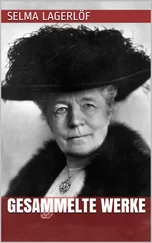Selma Lagerlöf - The Miracles of Antichrist
Здесь есть возможность читать онлайн «Selma Lagerlöf - The Miracles of Antichrist» — ознакомительный отрывок электронной книги совершенно бесплатно, а после прочтения отрывка купить полную версию. В некоторых случаях можно слушать аудио, скачать через торрент в формате fb2 и присутствует краткое содержание. Жанр: foreign_antique, foreign_prose, на английском языке. Описание произведения, (предисловие) а так же отзывы посетителей доступны на портале библиотеки ЛибКат.
- Название:The Miracles of Antichrist
- Автор:
- Жанр:
- Год:неизвестен
- ISBN:нет данных
- Рейтинг книги:4 / 5. Голосов: 1
-
Избранное:Добавить в избранное
- Отзывы:
-
Ваша оценка:
- 80
- 1
- 2
- 3
- 4
- 5
The Miracles of Antichrist: краткое содержание, описание и аннотация
Предлагаем к чтению аннотацию, описание, краткое содержание или предисловие (зависит от того, что написал сам автор книги «The Miracles of Antichrist»). Если вы не нашли необходимую информацию о книге — напишите в комментариях, мы постараемся отыскать её.
The Miracles of Antichrist — читать онлайн ознакомительный отрывок
Ниже представлен текст книги, разбитый по страницам. Система сохранения места последней прочитанной страницы, позволяет с удобством читать онлайн бесплатно книгу «The Miracles of Antichrist», без необходимости каждый раз заново искать на чём Вы остановились. Поставьте закладку, и сможете в любой момент перейти на страницу, на которой закончили чтение.
Интервал:
Закладка:
The young signorina by no means lamented over that. She sat with closed eyes and buried herself in her sorrow. Even when it began to grow light, she would not lift her eyes to look out. It was not until they were quite near Diamante that Giannita could persuade her to look at the landscape.
“Look! Here is Diamante; this is to be your home,” she said.
Then Micaela Palmeri, to the right of the road, saw mighty Etna, that cut off a great piece of the sky. Behind the mountain the sun was rising, and when the upper edge of the sun’s disc appeared above the line of the mountain, it looked as if the white summit began to burn and send out sparks and rays.
Giannita entreated her to look at the other side.
And on the other side she saw the whole jagged mountain chain, which surrounds Etna like a towered wall, glowing red in the sunrise.
But Giannita pointed in another direction. It was not that she was to look at, not that.
Then she lowered her eyes and looked down into the black valley. There the ground shone like velvet, and the white Simeto foamed along in the depths of the valley.
But still she did not turn her eyes in the right direction.
At last she saw the steep Monte Chiaro rising out of the black, velvet-lined valley, red in the morning light and encircled by a crown of shady palms. On its summit she saw a town flanked with towers, and encompassed by a wall, and with all its windows and weather-vanes glittering in the light.
At that sight she seized Giannita’s arm and asked her if it was a real town, and if people lived there.
She believed that it was one of heaven’s cities, and that it would disappear like a vision. She was certain that no mortal had ever passed up the path that from the edge of the valley went in great curves over to Monte Chiaro and then zigzagged up the mountain, disappearing through the dark gates of the town.
But when she came nearer to Diamante, and saw that it was of the earth, and real, tears rose to her eyes. It moved her that the earth still held all this beauty for her. She had believed that, since it had been the scene of all her misfortunes, she would always find it gray and withered and covered with thistles and poisonous growths.
She entered poor Diamante with clasped hands, as if it were a sanctuary. And it seemed to her as if this town could offer her as much happiness as beauty.
V
DON FERRANTE
A few days later Gaetano was standing in his workshop, cutting grape-leaves on rosary beads. It was Sunday, but Gaetano did not feel it on his conscience that he was working, for it was a work in God’s honor.
A great restlessness and anxiety had come over him. It had come into his mind that the time he had been living at peace with Donna Elisa was now drawing to a close, and he thought that he must soon start out into the world.
For great poverty had come to Sicily, and he saw want wandering from town to town and from house to house like the plague, and it had come to Diamante also.
No one ever came now to Donna Elisa’s shop to buy anything. The little images of the saints that Gaetano made stood in close rows on the shelves, and the rosaries hung in great bunches under the counter. And Donna Elisa was in great want and sorrow, because she could not earn anything.
That was a sign to Gaetano that he must leave Diamante, go out into the world, emigrate if there was no other way. For it could not be working to the honor of God to carve images that never were worshipped, and to turn rosary beads that never glided through a petitioner’s fingers.
It seemed to him that, somewhere in the world, there must be a beautiful, newly built cathedral, with finished walls, but whose interior yet stood shivering in nakedness. It awaited Gaetano’s coming to carve the choir chairs, the altar-rail, the pulpit, the lectern, and the shrine. His heart ached with longing for that work which was waiting.
But there was no such cathedral in Sicily, for there no one ever thought of building a new church; it must be far away in such lands as Florida or Argentina, where the earth is not yet overcrowded with holy buildings.
He felt at the same time trembling and happy, and had begun to work with redoubled zeal in order that Donna Elisa should have something to sell while he was away earning great fortunes for her.
Now he was waiting for but one more sign from God before he decided on the journey. And this was that he should have the strength to speak to Donna Elisa of his longing to go. For he knew that it would cause her such sorrow that he did not know how he could bring himself to speak of it.
While he stood and thought Donna Elisa came into the workshop. Then he said to himself that this day he could not think of saying it to her, for to-day Donna Elisa was happy. Her tongue wagged and her face beamed.
Gaetano asked himself when he had seen her so. Ever since the famine had come, it had been as if they had lived without light in one of the caves of Etna.
Why had Gaetano not been with her in the square and heard the music? asked Donna Elisa. Why did he never come to hear and see her brother, Don Ferrante? Gaetano, who only saw him when he stood in the shop with his tufts of hair and his short jacket, did not know what kind of a man he was. He considered him an ugly old tradesman, who had a wrinkled face and a rough beard. No one knew Don Ferrante who had not seen him on Sunday, when he conducted the music.
That day he had donned a new uniform. He wore a three-cornered hat with green, red, and white feathers, silver on his collar, silver-fringed epaulets, silver braid on his breast, and a sword at his side. And when he stepped up to the conductor’s platform the wrinkles had been smoothed out of his face and his figure had grown erect. He could almost have been called handsome.
When he had led Cavalleria , people had hardly been able to breathe. What had Gaetano to say to that, that the big houses round the market-place had sung too? From the black Palazzo Geraci, Donna Elisa had distinctly heard a love song, and from the convent, empty as it was, a beautiful hymn had streamed out over the market-place.
And when there was a pause in the music the handsome advocate Favara, who had been dressed in a black velvet coat and a big broad-brimmed hat and a bright red necktie, had gone up to Don Ferrante, and had pointed out over the open side of the square, where Etna and the sea lay. “Don Ferrante,” he had said, “you lift us toward the skies, just as Etna does, and you carry us away into the eternal, like the infinite sea.”
If Gaetano had seen Don Ferrante to-day he would have loved him. At least he would have been obliged to acknowledge his stateliness. When he laid down his baton for a while and took the advocate’s arm, and walked forward and back with him on the flat stones by the Roman gate and the Palazzo Geraci, every one could see that he could well measure himself against the handsome Favara.
Donna Elisa sat on the stone bench by the cathedral, in company with the wife of the syndic. And Signora Voltaro had said quite suddenly, after sitting for a while, watching Don Ferrante: “Donna Elisa, your brother is still a young man. He may still be married, in spite of his fifty years.”
And she, Donna Elisa, had answered that she prayed heaven for it every day.
But she had hardly said it, when a lady dressed in mourning came into the square. Never had anything so black been seen before. It was not enough that dress and hat and gloves were black; her veil was so thick that it was impossible to believe that there was a face behind it. Santissimo Dio! it looked as if she had hung a pall over herself. And she had walked slowly, and with a stoop. People had almost feared, believing that it was a ghost.
Читать дальшеИнтервал:
Закладка:
Похожие книги на «The Miracles of Antichrist»
Представляем Вашему вниманию похожие книги на «The Miracles of Antichrist» списком для выбора. Мы отобрали схожую по названию и смыслу литературу в надежде предоставить читателям больше вариантов отыскать новые, интересные, ещё непрочитанные произведения.
Обсуждение, отзывы о книге «The Miracles of Antichrist» и просто собственные мнения читателей. Оставьте ваши комментарии, напишите, что Вы думаете о произведении, его смысле или главных героях. Укажите что конкретно понравилось, а что нет, и почему Вы так считаете.












